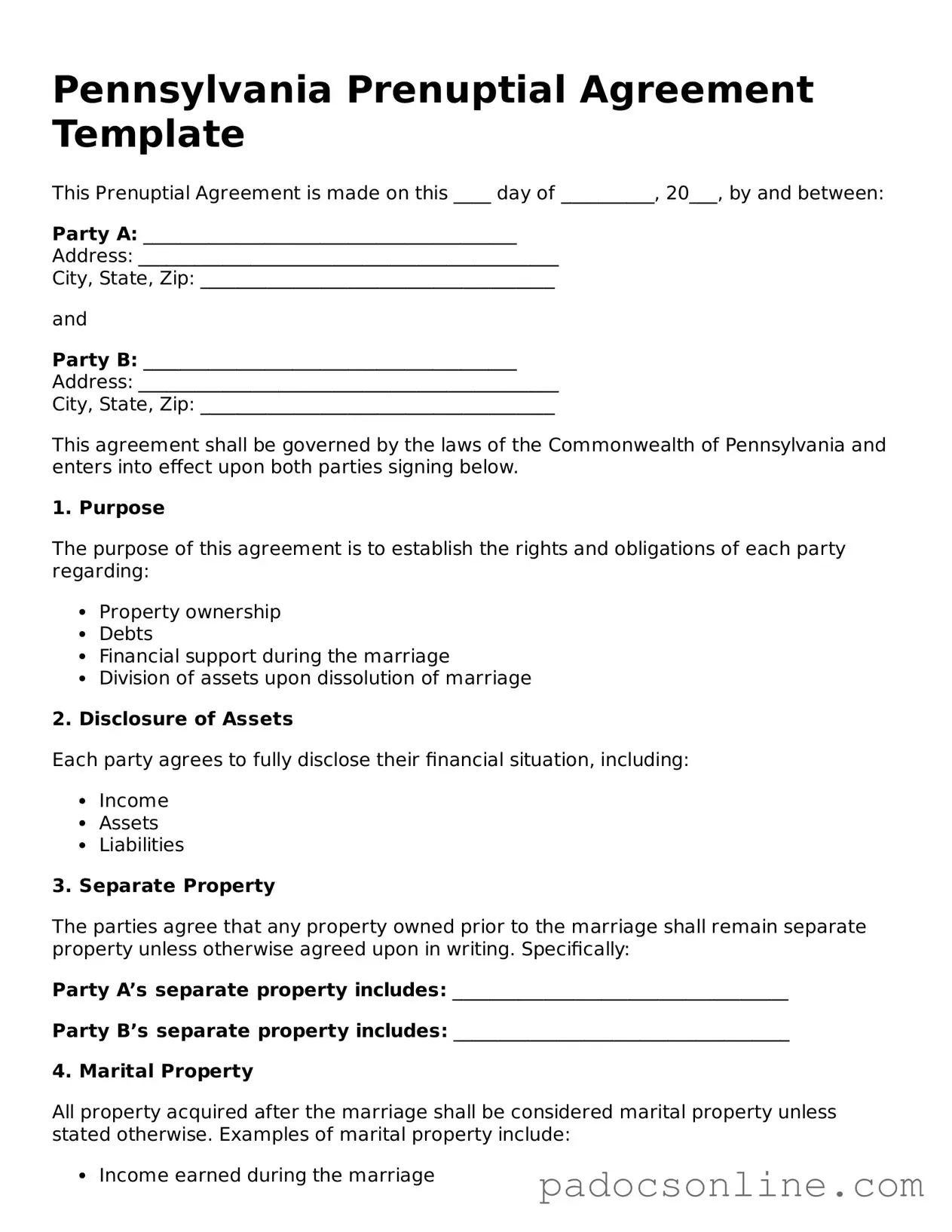Filling out a Pennsylvania Prenuptial Agreement form can be a complex process. Many individuals make common mistakes that can lead to complications later. One frequent error is failing to fully disclose assets. Transparency is crucial. Without complete information, the agreement may be challenged in court.
Another mistake involves not considering future financial changes. People often draft agreements based on their current financial status without accounting for potential changes, such as career advancements or inheritance. This oversight can render the agreement less effective over time.
Some individuals overlook the importance of legal advice. While it is possible to fill out the form independently, consulting an attorney can provide valuable insights. Legal professionals can help ensure that the agreement complies with Pennsylvania law and meets both parties' needs.
In addition, people sometimes fail to include specific terms. General language can lead to ambiguity, which may result in disputes later. Clearly outlining each party's rights and responsibilities is essential for clarity and enforceability.
Another common mistake is neglecting to update the agreement after significant life changes. Events such as the birth of a child or changes in financial circumstances should prompt a review of the prenup. Failing to make these updates can lead to unintended consequences.
Some individuals also forget to consider the timing of signing the agreement. It is important to sign the prenup well in advance of the wedding. Last-minute agreements can lead to claims of coercion or duress, which may invalidate the document.
Additionally, many overlook the need for both parties to have independent legal representation. This helps ensure that both individuals fully understand the agreement and its implications. Without separate counsel, one party may feel pressured or uninformed.
Another mistake involves using outdated or generic templates. Each situation is unique, and relying on a one-size-fits-all approach may not address specific needs or concerns. Customizing the agreement is crucial for its effectiveness.
Some people also fail to consider the potential for future disputes. Including a dispute resolution clause can provide a clear process for resolving disagreements. This proactive approach can save time and resources if issues arise.
Lastly, individuals often underestimate the importance of notarization. Having the agreement notarized adds a layer of authenticity and can help prevent challenges to its validity in the future. Taking this step can reinforce the seriousness of the agreement.
